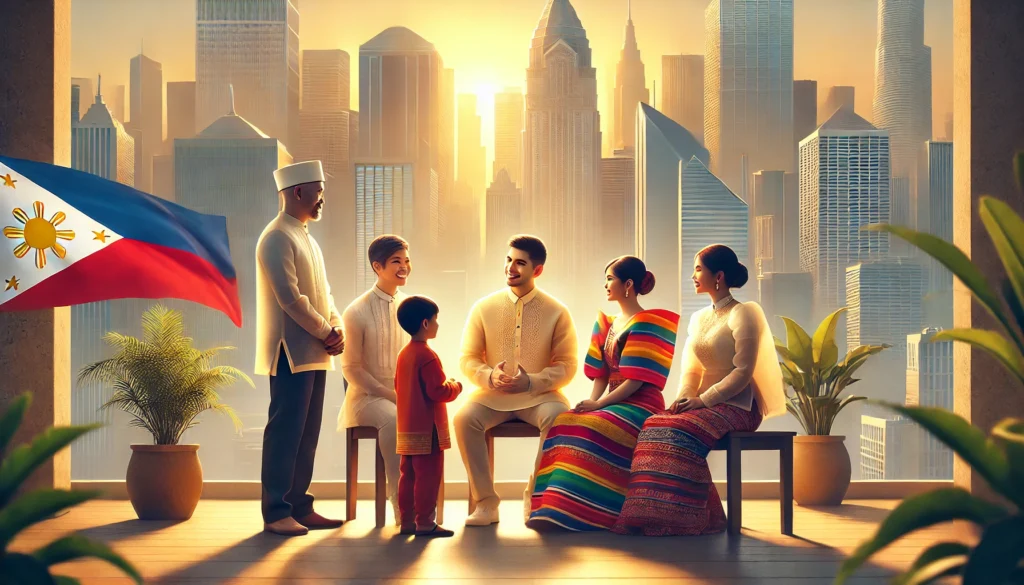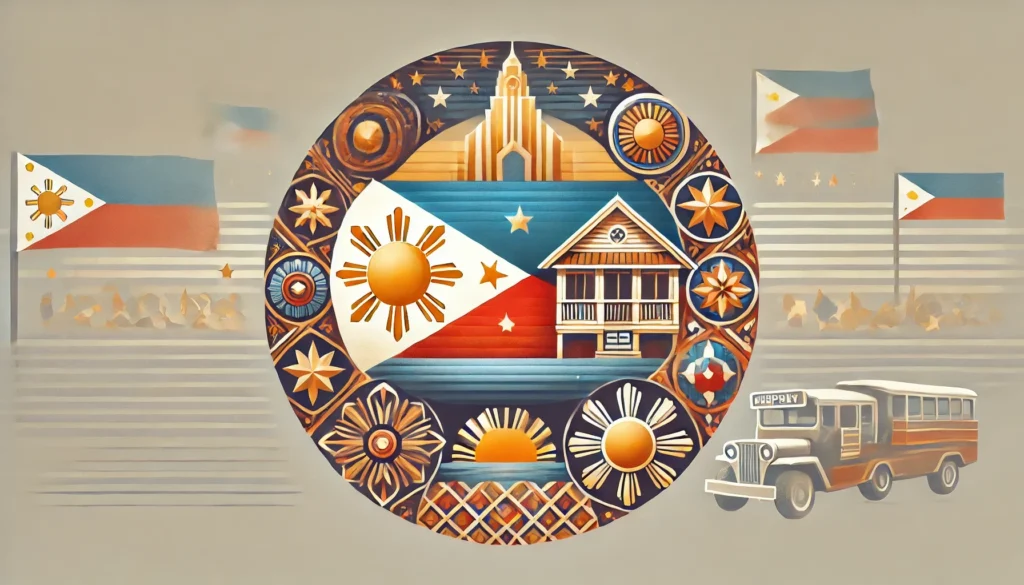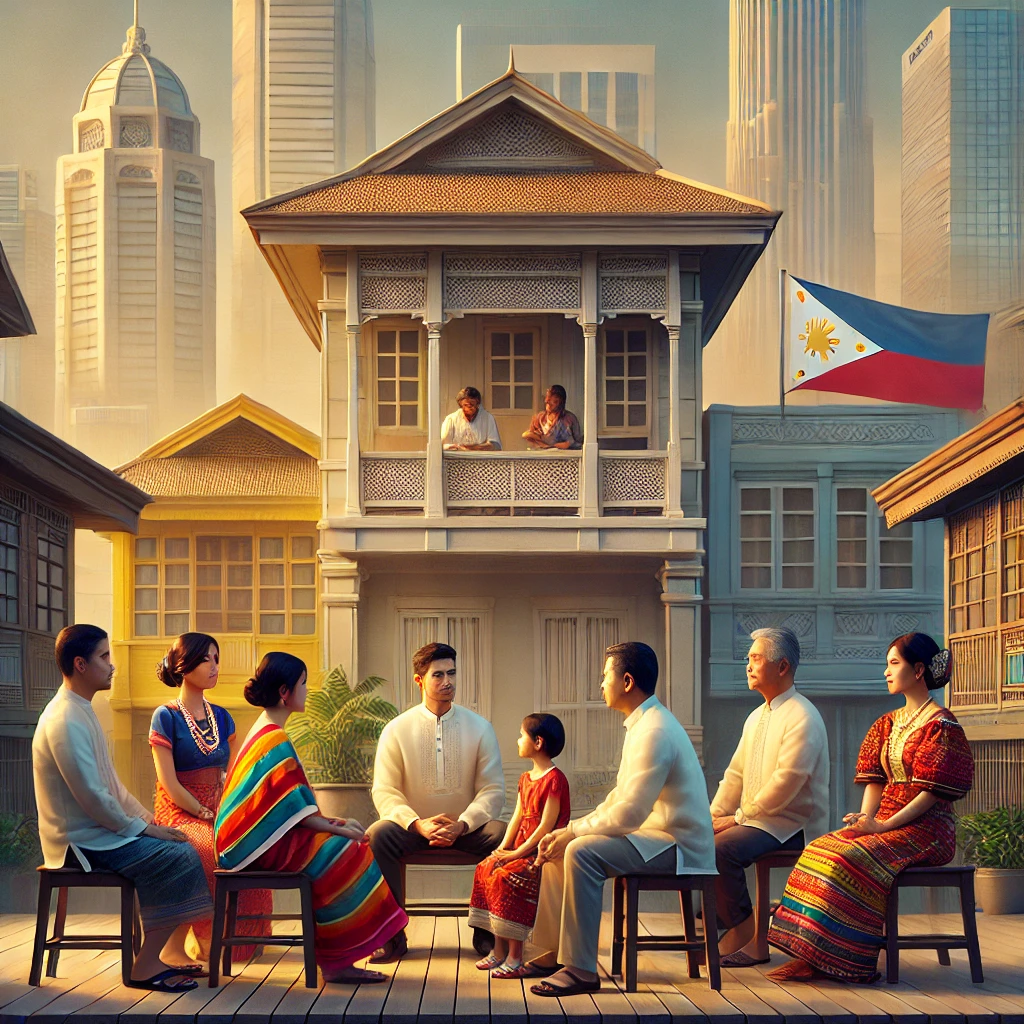The Philippines, an archipelagic nation in Southeast Asia, has a rich cultural heritage shaped by its complex history and diverse influences. At the heart of Filipino culture lie deeply ingrained values that have been passed down through generations. These values not only define the Filipino identity but also play a significant role in shaping the country’s interactions with the global community. This blog post explores the core Filipino values and examines their relevance and impact in the global context.
Historical Context of Filipino Values
The formation of Filipino values can be traced back to the country’s pre-colonial era, with subsequent influences from Spanish colonization, American occupation, and the post-independence period. This unique historical trajectory has resulted in a blend of indigenous, Eastern, and Western values that characterize contemporary Filipino society.
Pre-colonial influences: Before the arrival of Spanish colonizers, the Philippines consisted of numerous barangays, each with its own set of customs and beliefs. However, certain common values were observed across these communities, including respect for elders, communal living, and a strong connection to nature.
Spanish colonial period: The 333-year Spanish rule (1565-1898) introduced Catholicism, which significantly influenced Filipino values. This period saw the integration of Christian principles with pre-existing indigenous beliefs, resulting in a unique form of Filipino Catholicism.
American occupation: The subsequent American colonial period (1898-1946) brought about changes in the educational system and introduced democratic ideals, which further shaped Filipino values, particularly in areas of governance and individual rights.
Post-independence era: Since gaining independence in 1946, the Philippines has continued to evolve its value system, balancing traditional beliefs with modernization and globalization.
Core Filipino Values
Filipino values are deeply rooted in the concept of “kapwa,” which refers to the shared identity or inner self shared with others. This concept underlies many of the core values that Filipinos hold dear. Let’s examine some of these key values:
1. Family-centeredness (Pamilya)
The family is the cornerstone of Filipino society. Filipinos typically maintain strong ties with extended family members and prioritize family obligations over individual pursuits. This value manifests in various ways:
- Multi-generational households are common
- Family members often make significant sacrifices for the benefit of the family unit
- Decision-making often involves consultation with family members
- Family reunions and gatherings are frequent and important events
2. Respect and Obedience (Paggalang at Pagsunod)
Respect for elders and authority figures is a fundamental Filipino value. This is evident in various cultural practices:
- Use of honorific terms like “po” and “opo” when addressing elders or superiors
- Seeking blessings from elders through “pagmamano” (placing an elder’s hand on one’s forehead)
- Following the advice and decisions of parents and elders, even in adulthood
3. Debt of Gratitude (Utang na Loob)
This value emphasizes the importance of reciprocity and the obligation to return favors. It fosters strong social bonds and mutual support within communities. Key aspects include:
- Feeling indebted to those who have helped or shown kindness
- The expectation to repay favors, often going beyond the original act of kindness
- Strengthening social relationships through cycles of reciprocity
4. Shame and Face (Hiya at Amor Propio)
“Hiya” (shame) and “amor propio” (self-esteem) are closely related concepts that govern social behavior:
- “Hiya” encourages individuals to avoid bringing shame to themselves or their family
- “Amor propio” relates to personal dignity and the desire to maintain a positive public image
- These values often lead to conflict avoidance and the preservation of social harmony
5. Resilience and Optimism (Katatagan at Pag-asa)
Filipinos are known for their resilience in the face of adversity and their ability to maintain a positive outlook:
- The concept of “bahala na” (come what may) reflects a combination of fatalism and resourcefulness
- Filipinos often use humor to cope with difficult situations
- There is a strong belief in the ability to overcome challenges through perseverance and faith
Filipino Values in the Global Context
As the world becomes increasingly interconnected, Filipino values have both influenced and been influenced by global interactions. Let’s examine how these values manifest in various global contexts:
1. Filipino Diaspora and Cultural Export
The large Filipino diaspora has led to the spread of Filipino values across the globe. As of 2017, an estimated 10 million Filipinos were living and working overseas.
| Region | Number of Overseas Filipinos (2017) |
|---|---|
| Middle East | 2,510,485 |
| Southeast Asia | 869,650 |
| North America | 3,752,930 |
| Europe | 886,295 |
| East Asia | 1,377,940 |
| Oceania | 538,620 |
Source: Philippine Statistics Authority, 2017
This global presence has resulted in:
- The establishment of Filipino communities worldwide, which serve as hubs for cultural preservation and exchange
- The introduction of Filipino values and practices to host countries, particularly in areas like healthcare and domestic work
- The fusion of Filipino values with those of host countries, creating new cultural expressions
2. Business and Work Ethics
Filipino values significantly influence work ethics and business practices, both within the Philippines and in international settings:
- Family-centeredness often translates to a strong sense of loyalty to employers and colleagues
- The value of “utang na loob” can lead to long-term business relationships based on trust and reciprocity
- The emphasis on respect and harmony can sometimes result in a preference for indirect communication in professional settings
3. Diplomacy and International Relations
Filipino values play a role in shaping the country’s approach to diplomacy and international relations:
- The concept of “pakikisama” (getting along with others) influences the Philippines’ diplomatic style, often favoring consensus-building and conflict avoidance
- The value of resilience has helped the Philippines navigate complex geopolitical situations, particularly in relation to territorial disputes in the South China Sea
- The emphasis on family has led to strong advocacy for the rights and welfare of overseas Filipino workers in international forums
4. Healthcare and Caregiving
Filipino healthcare professionals are highly sought after globally, partly due to values that align well with caregiving:
- The nurturing aspect of family-centeredness translates well to patient care
- Respect for elders makes Filipino healthcare workers particularly suited for geriatric care
- The concept of “malasakit” (compassionate care) is highly valued in healthcare settings
According to the World Health Organization, as of 2017, the Philippines was one of the top sources of migrant nurses globally:
| Country | Percentage of Filipino-trained nurses in the nursing workforce (2017) |
|---|---|
| United States | 4% |
| United Kingdom | 7% |
| Australia | 3% |
| Canada | 3% |
| Ireland | 9% |
Source: World Health Organization, 2017
5. Education and Knowledge Sharing
Filipino values influence educational practices and knowledge sharing in global contexts:
- The high value placed on education, often seen as a family investment, drives many Filipinos to pursue international educational opportunities
- The concept of “bayanihan” (communal unity) translates to collaborative approaches in academic and research settings
- Respect for authority can sometimes lead to a more hierarchical approach to education, which may contrast with more egalitarian educational systems in other countries
Challenges and Adaptations in the Global Context
While Filipino values have proven resilient, they also face challenges in the global context:
1. Individualism vs. Collectivism
The strong emphasis on family and community in Filipino culture can sometimes clash with more individualistic societies:
- Filipinos working abroad may struggle with the expectation to prioritize individual goals over family obligations
- The concept of personal space and privacy may differ, leading to potential misunderstandings in multicultural settings
- Decision-making processes that involve extensive family consultation may be seen as inefficient in some global business contexts
2. Communication Styles
The indirect communication style often preferred by Filipinos can pose challenges in international settings:
- The desire to maintain harmony and avoid confrontation may be misinterpreted as a lack of assertiveness
- The use of non-verbal cues and contextual understanding, common in Filipino communication, may not translate well in more direct communication cultures
- The practice of using euphemisms or softening language to show respect may lead to misunderstandings in professional settings
3. Work-Life Balance
The strong emphasis on family in Filipino culture can sometimes conflict with work expectations in other countries:
- Extended family obligations may not be as readily understood or accommodated in some work cultures
- The concept of “Filipino time” (a relaxed attitude towards punctuality) can be problematic in cultures that place a high value on strict timekeeping
4. Evolving Gender Roles
Traditional Filipino values regarding gender roles are being challenged in the global context:
- Increased exposure to diverse gender norms and expectations is leading to a reevaluation of traditional roles within Filipino families
- The high number of female overseas Filipino workers is changing family dynamics and challenging traditional notions of motherhood and caregiving
5. Modernization and Tradition
As Filipinos engage more with the global community, there is an ongoing negotiation between traditional values and modern, global influences:
- Younger generations of Filipinos, particularly those in urban areas or living abroad, may prioritize individual aspirations over traditional family expectations
- The use of social media and digital technology is changing the way Filipinos maintain family ties and practice cultural traditions across distances
The Future of Filipino Values in a Global Context
As the world continues to evolve, Filipino values are likely to undergo further adaptations while maintaining their core essence:
1. Hybrid Value Systems
The interaction between Filipino values and global influences is likely to result in hybrid value systems:
- Filipino communities abroad may develop unique cultural expressions that blend traditional values with local influences
- Second and third-generation Filipinos in diaspora communities may reinterpret traditional values in the context of their multicultural experiences
2. Digital Preservation and Evolution of Values
Technology is playing an increasingly important role in the preservation and evolution of Filipino values:
- Social media platforms are being used to maintain family connections across distances and to share cultural practices
- Online communities are becoming spaces for discussing and redefining Filipino values in the global context
- Digital archives and virtual museums are helping to preserve and disseminate information about Filipino cultural heritage
3. Global Citizenship and Filipino Identity
As Filipinos become more integrated into the global community, there is likely to be an increased focus on balancing Filipino identity with global citizenship:
- Education systems may place greater emphasis on developing intercultural competence alongside traditional Filipino values
- There may be a growing recognition of the value of Filipino cultural practices in addressing global challenges, such as community-based approaches to disaster resilience
4. Corporate Culture and Filipino Values
As more Filipino professionals take on leadership roles in global companies, there may be increased integration of Filipino values into corporate cultures:
- The emphasis on harmonious relationships may influence team-building and conflict resolution strategies
- The concept of “malasakit” may be incorporated into customer service and employee welfare programs
Conclusion
Filipino values, deeply rooted in history and culture, continue to play a significant role in shaping the Filipino identity and influencing global interactions. As Filipinos engage with the wider world, these values are both challenged and reaffirmed, leading to a dynamic process of cultural evolution.
The core values of family-centeredness, respect, gratitude, face, and resilience remain central to the Filipino worldview, even as they adapt to new global contexts. These values contribute to the unique perspective that Filipinos bring to international workplaces, communities, and relationships.
As the world becomes increasingly interconnected, the ability to navigate between different cultural value systems becomes ever more important. Filipino values, with their emphasis on interpersonal relationships and community harmony, offer valuable insights for building bridges across cultures and fostering global understanding.
The future of Filipino values in the global context is likely to be characterized by continued adaptation and evolution. However, the essence of these values – the importance of human connections, respect for others, and resilience in the face of challenges – will undoubtedly continue to resonate both within the Philippines and across the global Filipino diaspora.
By understanding and appreciating the nuances of Filipino values, we can foster more effective cross-cultural communication, build stronger international relationships, and contribute to a more inclusive global society.
Disclaimer: This blog post is based on information available up to 2017. While every effort has been made to ensure accuracy, cultural values and their expressions are dynamic and subject to change. Readers are encouraged to consider more recent sources for up-to-date information. If you notice any inaccuracies, please report them so we can correct them promptly.




